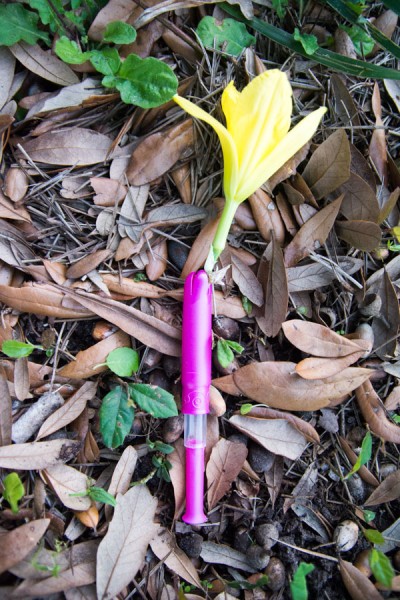Conscious Period raises awareness about safety, availability of menstruation products

Josh Christian | Photography Editor
Conscious Period sells feminine hygiene products at a discounted price and for every box bought, the organization provides free feminine care products to various homeless shelters.
The average woman* will spend more than 100,000 hours in their lifetime using a tampon yet rarely consider the accessibility, sustainability and safety of such products.
Tampon manufacturers are not required to disclose the contents of their products to the U.S. Food and Drug Administration. There is little research confirming the safety of these products, which affects every tampon user but especially homeless individuals and underserved communities who cannot afford the products of their choice.
A national initiative to correct this disparity has been brought to Tulane by a social policy and practice group project. Conscious Period, founded by Annie Lascoe and Margo Lang in 2015, aims to change how menstruation products are used and perceived through the production of organic tampons.
Conscious Period works with a dual-giving model to provide healthier care to people regardless of their financial situation, according to its website.
“When women cannot afford feminine hygiene products, by necessity they often resort to unsanitary methods of dealing with their periods,” Emma Meyerkopf, sophomore and Conscious Period team member, said. “Poor menstrual hygiene practices can be stopped by lowering the financial burden of feminine hygiene products and providing homeless women with them, so they have a safe and sanitary way to manage menstruation.”
The group is seeking a partnership with The Well for Health Promotion to purchase the products at a discounted price for students, a step that would help both students seeking to promote their own safety and for those in the New Orleans homeless community.
“We want students to have easy access to these products,” Samantha Ossip, sophomore and Conscious Period team member, said. “We also want to help local shelters provide free products. … A lot of homeless [people] struggle to pay for feminine hygiene products and end up with nothing or having to use unsanitary products.”
Conscious Period sells menstruation products at a discounted price and for every box bought, the organization provides free menstruation products to various homeless shelters. Conscious Period team members hope that this social enterprise model will provide jobs and help provide products to overlooked communities.
Conscious Period team members also want to address the gendered disparity seen in the availability of public health products on campus. Veronica Lloyd, sophomore and Conscious Period team member, said this gendered disparity can be seen in how condoms are provided all over campus but feminine hygiene products can only be found at The Well.
“This is as much a gender issue as it is a public health initiative,” Lloyd said.
*This statistic does not account for tampon users who do not necessarily identify as women.
The Hullabaloo acknowledges that not all people who use tampons and other menstrual products identify as women.
Your donation will support the student journalists of Tulane University. Your contribution will allow us to purchase equipment and cover our annual website hosting costs.


